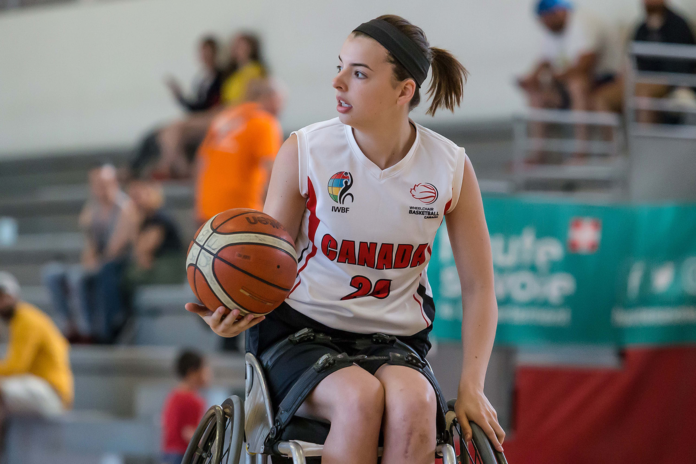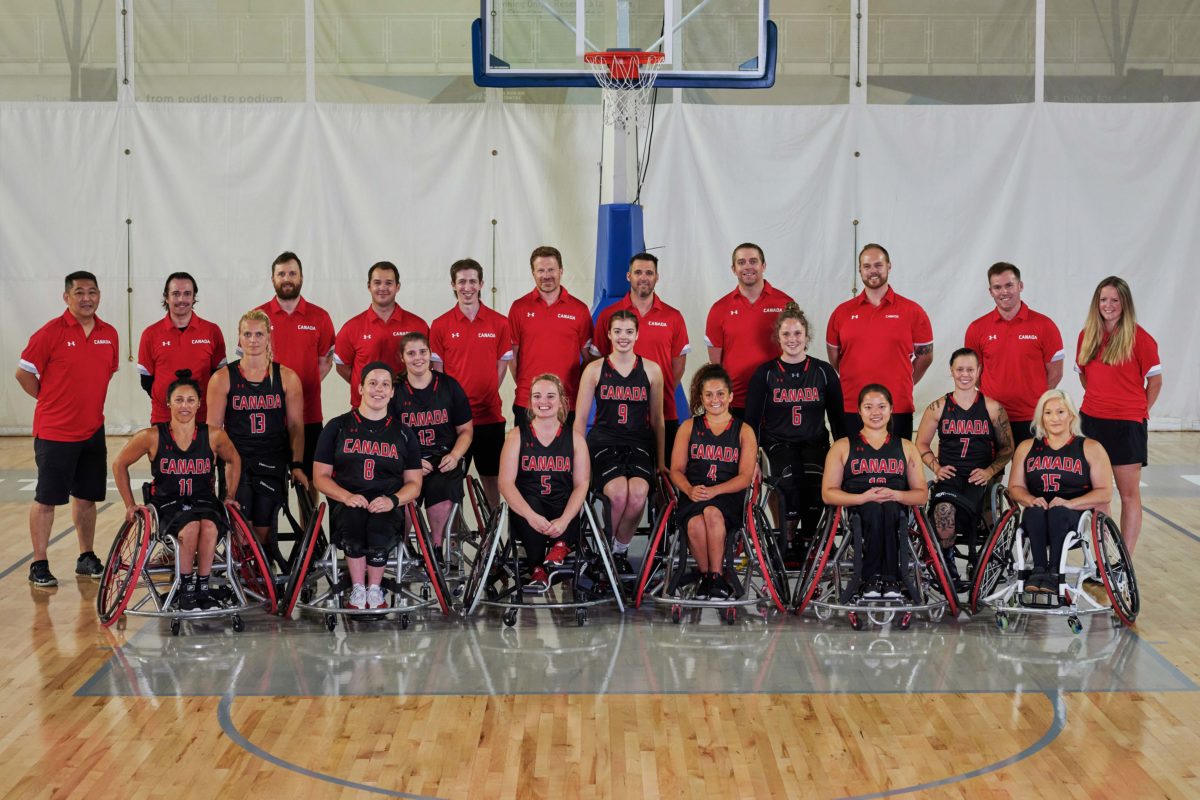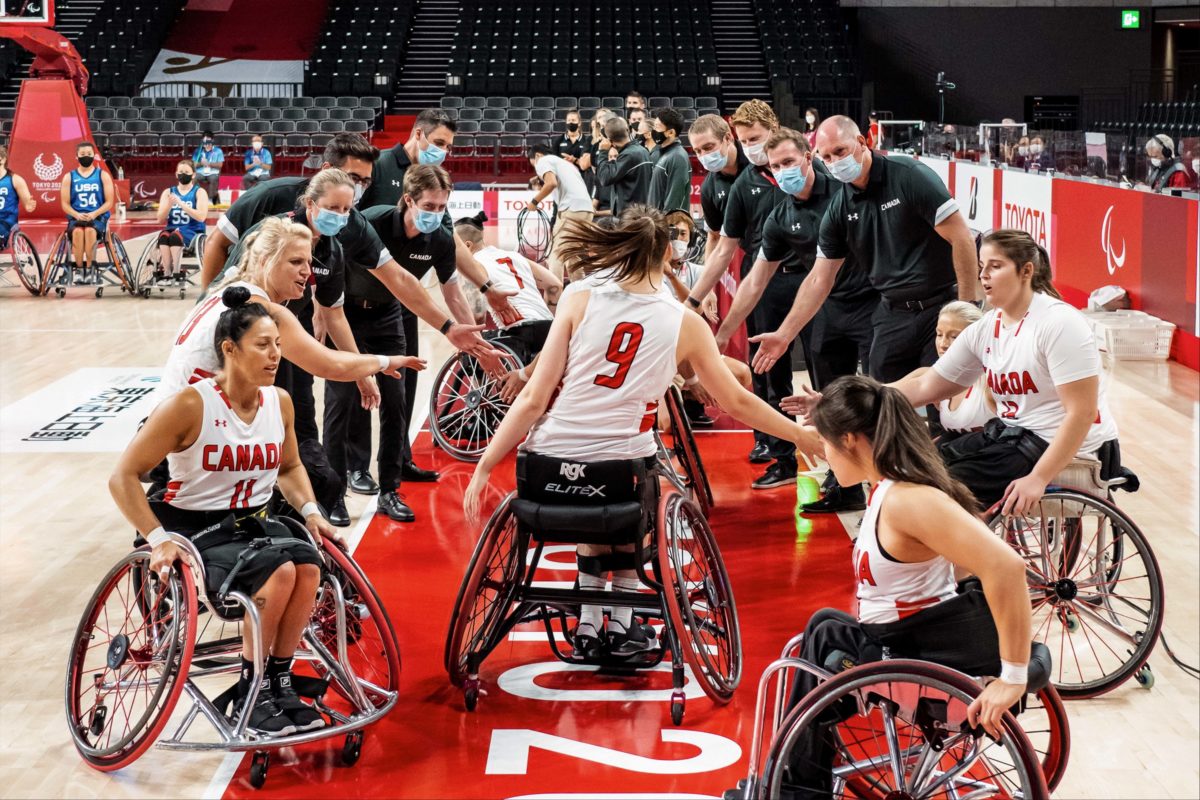
Danielle DuPlessis, a Fredericton-born athlete, represented Canada in the 2020 Tokyo Paralympics this summer playing wheelchair basketball. Speeding across the court against the Japanese women’s team, DuPlessis said she could feel the opposing team’s energy and passion as they competed.
In her second year of university, the 19-year-old athletes’ life was turned upside down when playing the sport she loved caused permanent damage to her knee.
“It took me a long time to come to terms with what was going on and realize that I probably was never going to be able to run or jump the way that I used to,” said DuPlessis.
The 24-year-old has been playing basketball for most of her life. From a young age, she and her two siblings were heavily involved in athletics.
DuPlessis said her mother was a big influence on her getting into sports and helped foster her love of basketball.
As they grew older, her siblings found interests in other hobbies and sports while DuPlessis fell deeper in love with basketball.
“Basketball has always been a big part of my life and a core piece of what I did and who I hung out with,” she said.
The Injury
DuPlessis played for the Fredericton High School basketball team and with the New Brunswick Provincial team.
In Grade 11, she made the switch from FHS to Rothesay Netherwood School where she continued playing. This was where she first tore her ACL, MCL and meniscus in her left knee – an injury that involves three parts of the knee joint commonly known as the “unhappy triad.”
Surgery was required to repair the ACL and the meniscus, followed by rehabilitation.
Once she healed, she immediately started playing again. But in Grade 12, the injury reoccurred once she was back on the court.
“That was bad news,” said DuPlessis. “After that, I kind of stopped playing soccer and basketball because they’re both really high risks sports for knee injuries with all of the twisting and high contact.”
It wasn’t until she attended Mount Allison University, where DuPlessis decided to start playing again through pickup games with friends.
She struggled to stay away from sports and joined a volleyball team. In 2017, her third and final knee injury took place while playing basketball.
“I was very upset that I wasn’t going to be able to play sports anymore.”

Introducing wheelchair basketball
After a prolonged two years, DuPlessis was ready to take action and get back on the court.
She reached out to Parasport New Brunswick, the provincial wheelchair sports organization and realized she could qualify to play. With little knowledge of the sport, DuPlessis knew she had a long road ahead of her.
“Right away they got me very excited and got the ball rolling,” said DuPlessis. “It was a lot of me practicing shooting, trying to figure out how to move in the chair and stuff like that … I then started playing some weekend tournaments and scrimmages.”
DuPlessis said the hardest challenge was incorporating the wheelchair into her game because it didn’t come naturally and she had to use her arms a lot more.
After months of practice, her confidence in the sport started to build and she was eager to grow further. She moved to Toronto to be involved in the Wheelchair Basketball National Academy, a program where players across the country go to train and improve their skills.
“I started having a sense that I could be good at this if I tried and that this could be something that I really enjoy. I thought, why not give it my best shot?”
After pushing herself and practicing twice a day, five days a week, she proved her capability and made the Canadian Women’s Wheelchair Basketball team in 2019.
“We have an amazing team,” she said. “We get to travel to some really crazy places like Japan or Peru. I enjoy that aspect – the camaraderie, being friends with my teammates and being able to travel together to play.”

The 2020 Tokyo Paralympics
Their journey began in August of 2019 when her team found out they qualified for the Paralympics. In March of 2020, they began training when the pandemic hit.
After waiting for months to see if the games would be possible, the team started preparing for the Paralympics.
Because of the pandemic, even training looked different.
“You go from training in a beautiful facility in Toronto, to training in a driveway in Fredericton,” she said.
The road to the Paralympics was more complicated because the team didn’t get to play any tournaments or games in the United States or the United Kingdom to prepare.
It wasn’t until arriving in Japan to play their first game that the team actually got to play together.
“We sort of went in there blind.”
Although her experience in the village was different than most, she enjoyed every minute of it. The village consisted of apartment buildings holding athletes from around the world, with dining rooms, shops, gyms and other small luxuries.
“We had a beautiful view of the water. It was kind of a closed bubble though, but we were able to get out and watch the Canadian men’s basketball team play.”
DuPlessis is grateful for the experience and the team is already counting down the days until the 2024 Paris Paralympics.
“I’m excited for my family to actually be there and watch me play this time,” she said.
Looking back on the day when she made the call to Parasport New Brunswick, DuPlessis never would have imagined it leading to her becoming a Paralympian.
“My advice to people wanting to make it to the Paralympics someday is to just show up, that is the first step.”
